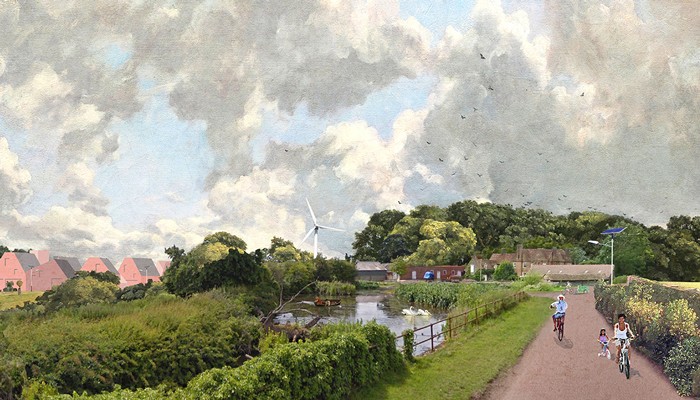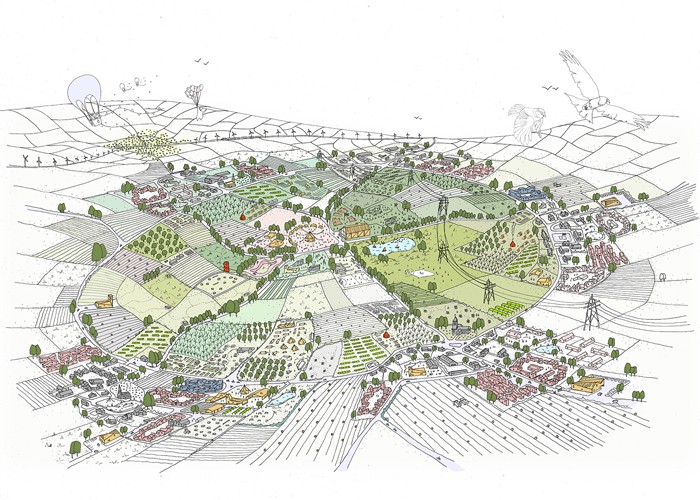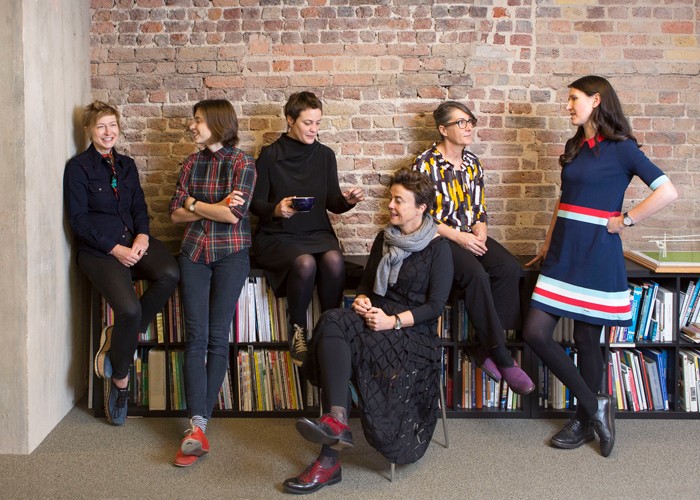VeloCity: a car free future
Congratulations to Tibbalds Planning and Urban Design ‘VeloCity’ team who been named by The National Infrastructure Commission (NIC) and Malcolm Reading Consultants as the winners of The Cambridge to Oxford Connection: Ideas Competition. The scheme champions a car free future for placemaking.
The all-women team collaborated to create a place-based vision – VeloCity – and together they determined to employ a strategic approach to growth and placemaking along the Oxford to Cambridge corridor, centred on a re-imagining of the village for the 21st century.
The proposals introduce a plan for a future which no longer needs to rely so heavily on movements by car. Opportunities for an associated finer grain network of local, medium and longer distance cycle and pedestrian routes are created through the introduction of a new integrated system of fast rail and road links, connecting major towns and cities.
The vision has been developed to enrich village life and a sense of place, while creating new homes and working environments in healthy and socially cohesive places.

Jennifer Ross, Director of Tibbalds Planning and Urban Design, said: “The successful implementation of this strategy allows for traditional planning policy to be turned on its head and locations that were previously seen as unsuitable for growth transformed into well-connected and sustainable places. It is a people-centered vision that shows how communities could get involved and shape the places in which they live.”
Sarah Featherstone, Director of Featherstone Young, said: “Our re-imagination of the 21st century village will provide new homes and working environments whilst retaining the strong character and identity of existing villages. This is a real opportunity to reinvigorate the social infrastructure creating lifetime villages with mixed tenures and integration of shared spaces where people can live, work and socialise together.”
Kay Hughes, Director of Khaa, said: “The National Infrastructure Commission competition shows the benefit of putting design at the heart of deciding how to shape the places we live and work. The VeloCity proposal reconciles the needs of our environment with a high-technology and low-cost future infrastructure. It supports health and wellbeing while creating places with identity and a sense of belonging, a truly collaborative effort from all the team.”
Petra Marko of Marko and Placemakers said: “Our proposal addresses people, place and the process how to effect big change over time. It is important to see the National Infrastructure Commission recognise this placemaking approach as an essential and integral part of large-scale infrastructure planning.”
Annalie Riches, Founding Director of Mikhail Riches, said: “VeloCity is the result of a planning strategy that ensures the sustainability of the countryside while unlocking the potential for economic growth. We want development to strengthen the identity of village centres – adding housing density that will in turn support local village economies, rather than sprawling along roads as a car-dependent endless suburb.”
Judith Sykes, Director of Expedition Engineering, said: “VeloCity demonstrates the role of infrastructure in placemaking. Strategic infrastructure investment combined with local networks and digital platforms unlocks potential to create thriving villages for the 21st century.”
Contact Tibbalds Planning and Urban Design






